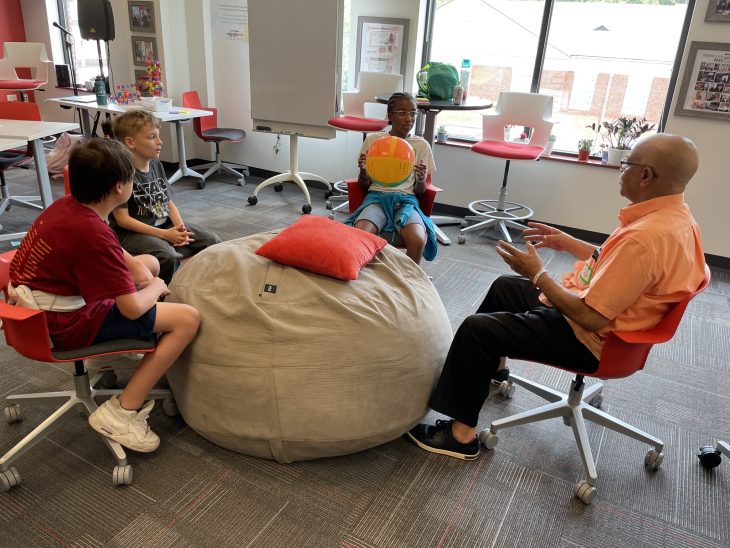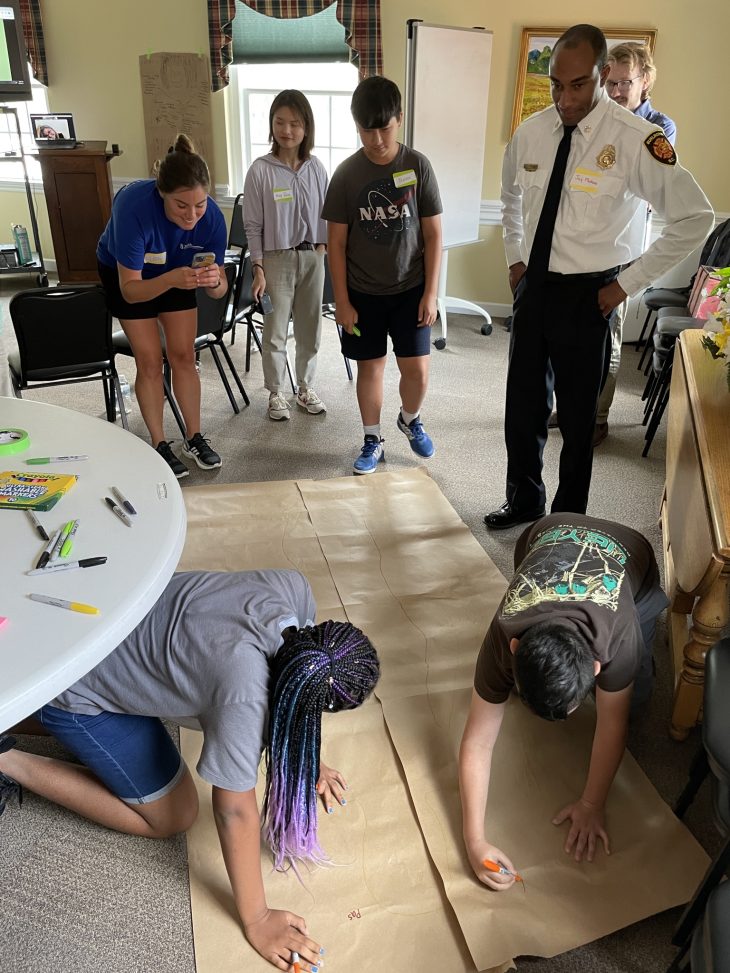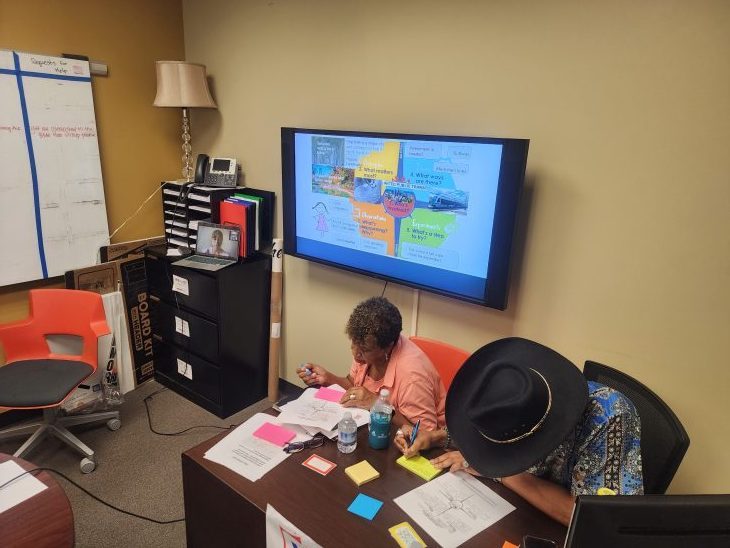The Power + Place Collaborative and M. Ed. students in 7460 Design Thinking connected youth to the power of sharing stories and connecting with the surrounding community.
Elon M.Ed. students in 7460 Design Thinking partnered with the African American Cultural Arts and History Center and the Power + Place Collaborative to facilitate design thinking educational activities for Burlington Summer Youth Camps.
With the support of six Power + Place community storytellers and Shineece Sellars, executive director of the African American Cultural Arts and History Center, students designed three intergenerational local history and storytelling activities to foster connection and engagement for more than 20 Alamance youth.
To prepare, students toured the African American Cultural Arts Center and Burlington’s “Black Bottoms” with Sellars and Center Manager James Shields. Students also met with design thinking practitioners and researchers from across fields, integrating participatory design strategies like the Innovators Compass by Ela Ben-Ur.
With themes of connection, engagement, and belonging, each youth session was designed to meet Power + Place Collaborative’s commitments to participatory storytelling and North Carolina educational standards.
One student team encouraged youth to explore their connections to diverse community members and places through art, creative writing, and a “beach ball storytelling activity.” Working with Power + Place storytellers Celo Faucette and Roslyn Crisp, youth created future spaces of connection across the community.

Celo Faucette, a former city council member and a Power + Place storyteller, emphasized the value of these opportunities. “It is very important to be involved in your community and try your best to make it a better place to live for everyone,” he said.
Another team of students led a design session exploring the role of empathy. After listening to the stories of Jay Mebane and Tamara Kersey from the Power + Place Collaborative, the students drew body-sized “empathy maps” with their storytellers. These empathy maps involved tracing an outline of the volunteers onto a large piece of poster paper, then adding descriptions of the volunteers to the outline. For example, they added places the volunteer has been or examples of the work that they do.

“I plan to just listen to people and make sure that everyone has someone to talk to, even when they do not feel they have someone to talk to,” said one of the students, Elizabeth, as she reflected at the end of the session,
Another group of students engaged with Power + Place Storytellers Roger Moore and Nettie Baldwin. They shared about the spaces in Burlington that they feel they belong to most and why. Their stories captured many of Burlington’s special places from across the years.

Students shared places where they feel a sense of belonging and discussed how they felt Burlington can provide a sense of community and belonging for people of all ages. Their stories and ideas are a reminder of the importance of creating spaces where everyone feels like they belong.
Leah Podolle, director of the youth camps, noted that she really “valued the engagement of the teachers and their work to make the program a success for Burlington Recreation and Parks Explorers Camp.” She is looking forward to continuing this partnership with Elon’s Center for Design Thinking.
This fall storytelling and sharing efforts continue with a focus on spaces of faith and spiritual diversity across the County. The Power + Place Collaborative will be capturing a dozen new stories from community members, partnering with the campus and local community to support a community book club featuring the 2023 Common Reading book “I Never Thought of It That Way: How to Have Fearlessly Curious Conversations in Dangerously Divided Times,” and hosting a public screening November 29th at 5:00 pm at the Elon Community Church.
The Power + Place Collaborative webpage contains more information.


